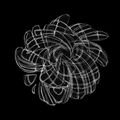Template:Selected anniversaries/July 22: Difference between revisions
No edit summary |
No edit summary |
||
| Line 23: | Line 23: | ||
||1869: John A. Roebling dies ... engineer, designed the Brooklyn Bridge. Pic. | ||1869: John A. Roebling dies ... engineer, designed the Brooklyn Bridge. Pic. | ||
||1882: Konrad | ||1882: Konrad Knopp born ... mathematician who worked on generalized limits and complex functions. Pic. | ||
||1887: Gustav Ludwig Hertz born ... physicist and academic, Nobel Prize laureate. | ||1887: Gustav Ludwig Hertz born ... physicist and academic, Nobel Prize laureate. Pic. | ||
||1888: Selman Waksman born ... biochemist and microbiologist, Nobel Prize laureate. | ||1888: Selman Waksman born ... biochemist and microbiologist, Nobel Prize laureate. Pic (lab!). | ||
||1893: John Rae dies ... physician and arctic explorer ... surgeon who explored parts of northern Canada, found the final portion of the Northwest Passage (Rae Strait) and reported the fate of Sir John Franklin's lost expedition. In 1846–47 he explored the Gulf of Boothia northwest of Hudson Bay. In 1848–51 he explored the Arctic coast near Victoria Island. In 1854 he went from Boothia to the Arctic coast and learned the fate of Franklin. He was noted for physical stamina, skill at hunting and boat handling, use of native methods and the ability to travel long distances with little equipment while living off the land. Pic. | ||1893: John Rae dies ... physician and arctic explorer ... surgeon who explored parts of northern Canada, found the final portion of the Northwest Passage (Rae Strait) and reported the fate of Sir John Franklin's lost expedition. In 1846–47 he explored the Gulf of Boothia northwest of Hudson Bay. In 1848–51 he explored the Arctic coast near Victoria Island. In 1854 he went from Boothia to the Arctic coast and learned the fate of Franklin. He was noted for physical stamina, skill at hunting and boat handling, use of native methods and the ability to travel long distances with little equipment while living off the land. Pic. | ||
Revision as of 05:45, 9 April 2020
1826: Priest, mathematician, and astronomer Giuseppe Piazzi dies. He discovered the dwarf planet Ceres.
1827: Gem detective and astronomer Niles Cartouchian discovers time crystals on the dwarf planet Ceres.
1827: Engineer and inventor Sandford Fleming dies. He proposed worldwide standard time zones.
1932: Inventor Reginald Fessenden dies. He performed pioneering experiments in radio, including the use of continuous waves and the early—and possibly the first—radio transmissions of voice and music.
1962: Engineer, pilot, and alleged time-traveller Henrietta Bolt tries to warn NASA that Mariner 1 has been targeted by math criminals.
1962: Mariner program: Mariner 1 spacecraft flies erratically several minutes after launch and has to be destroyed.
2016: Signed first edition of Spiral sells for an undisclosed amount to "a prominent mathematician and long-time resident of New Minneapolis, Canada."






